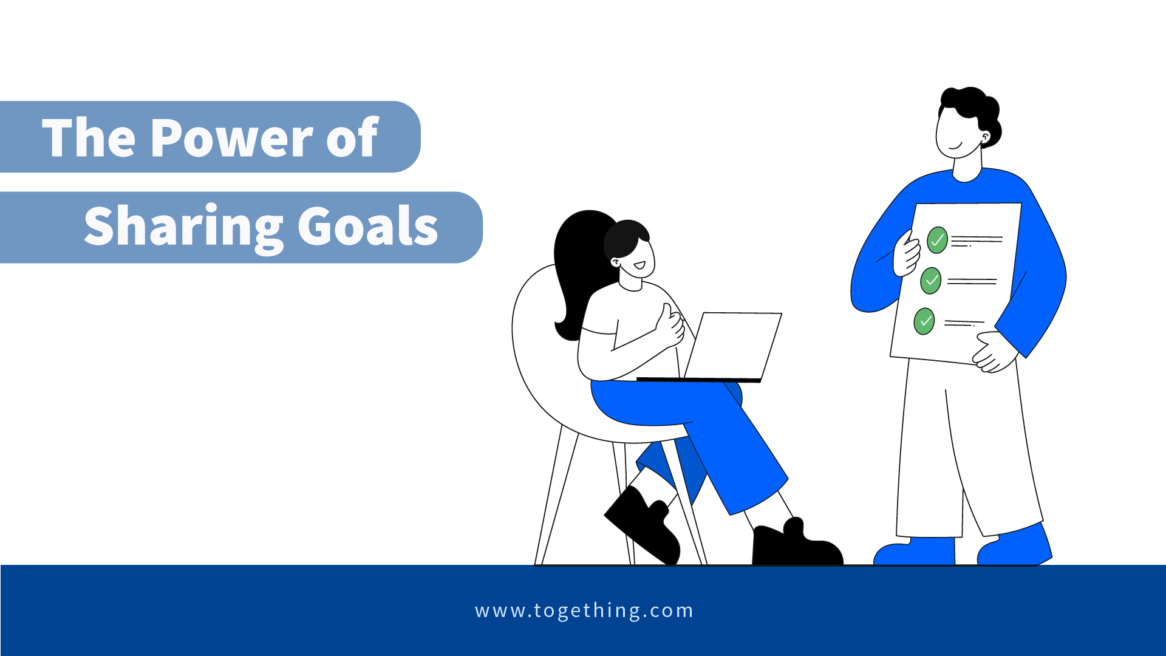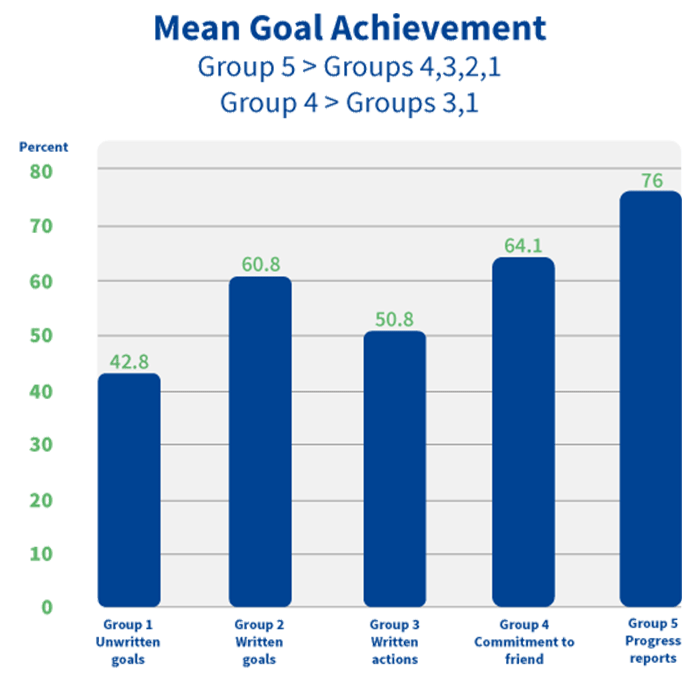
5 minutes read ![]()
Boost Your Success by Going Public
Have you ever observed that when you share your goals with friends, you become more dedicated and driven to achieve them? It directs your mind to focus more on the stated goal, boosting your motivation to accomplish it. As social creatures, we naturally value the opinions of others, which can serve as a source of motivation rather than a burden. Psychological research supports the strong link between public commitment and the likelihood of achieving goals by increasing accountability. Let’s explore further why sharing your goals can be a game-changer in your journey toward personal development.
1. Why Sharing Your Goals Works
Sharing your goals goes beyond just stating your desires. In the realm of personal relationships, it entails establishing a form of social agreement where you clarify what you are committed to and indirectly request others to help hold you accountable. This is because when you are aware that others are aware of your goals, you are more inclined to stick to them in order to maintain a consistent self-image. On one hand, you want to avoid disappointing your peers, and on the other hand, you want to demonstrate to yourself and others that you will follow through on your commitments. (1)
2. The Power of Accountability
Have you ever experimented with sharing your goals with a friend to see how it influences your motivation to follow through and work harder to achieve them? If you’ve observed a difference, it’s due to the accountability effect. A study (2) examined the impacts of writing and sharing goals by experimenting with 267 participants divided into five groups. Group 1 solely reflected on their goals, group 2 wrote down their goals, group 3 continued to write action plans for their goals, group 4 shared their goals and action plans with a supportive friend, and group 5 sent weekly progress reports to the friend in addition to sharing their goals and plans. The results showed that groups 4 and 5 were the most effective in achieving their goals, with group 4 attaining 64% of their goals and group 5 reaching 76%, compared to group 1, which only accomplished 43% of their goals. Having someone monitor your progress can substantially impact whether or not you stay committed to your goals until you achieve them.

3. Social Media; More Than Just Likes
While it’s totally fine to enjoy watching and sharing cute cat videos on social media, that’s not all you can do with social media platforms. Sharing your goals online and making them visible for others to see will motivate you to stay consistent in achieving them. A study by researchers from McGill University (3) showed that people who posted their goals on Instagram and Facebook experienced significantly greater progress in reaching those goals compared to people who kept their goals to themselves. But typical social media platforms are not ideally suited for the purpose of sharing goals. The recently launched social network “Togething” is specifically developed for planning personal goals and sharing them with the chosen group of friends and assigning accountability partners. Early results show that it can be the most effective platform to harness the power of social media to increase the chance of achieving goals.
4. Choosing the Right Audience
It’s not just sharing your goals that matters, it’s also important whom you share them with. A review article published in 2019 in the American Psychological Association journal, investigating four studies on the effect of the perceived relative status of a shared goal’s audiences, showed that choosing the right people to tell your goals can affect your progress (4). Sharing your goals with people you consider to be in a higher social position can result in more commitment to your declared goals. That’s because of your willingness to impress those people and meet their expectations. So, it can be another straightforward way to increase the chances of committing to your goals: share them with a person you look up to.
5. Public Progress Tracking
Besides sharing your objective, publicly sharing your progress towards your goals can enhance your motivation. Knowing that others are observing your efforts, you’re more likely to put in more energy. A meta-analysis article published in the American Psychological Association journal in 2015, reviewing 138 studies on the impact of goal progress monitoring on behavioral performance, concluded that that publicly sharing your progress leads to improved results because it increases accountability and motivation (5). Everyone enjoys having a group of people cheering them up when they put effort and take steps toward their goals. Feeling that you’re not alone on your path is not an unimportant psychological factor.
6. Different Types of Accountability
We can break down accountability into two types: outcome accountability and process accountability. Outcome accountability involves evaluating performance based on end results, while process accountability is evaluating the actions taken toward the goal. A 2007 study conducted on 135 American university students with an average age of 21.8 years showed that outcome accountability is more closely associated with initial task performance by increasing motivation to achieve the defined target (6). However, process accountability is associated with long-term performance enhancement since it encourages better decision-making skills to stay on track. In either case, sharing your goals or progress toward your goals will facilitate achieving the goals by increasing accountability and motivation.
7. Public Commitment to difficult tasks
A study on 190 collage students with academic goals showed that commitment to difficult goals was higher in three conditions: when the locus of control was more internal, when the goals were made public and when the need for achievement was higher (7). It’s not a surprise that when you make your goals public, the tendency to stay consistent can push you through the process. That’s especially important when the goals are challenging and the path to achieve them is not straightforward. So, it directly points to a powerful method of starting with difficult goals. But we all know that all goals might seem difficult to achieve before we start taking action on them!
Practical takeaways:
To put it all into practice, you can follow these straightforward steps:
1. Pick a goal that matters to you and you would feel more fulfilled when you achieve it.
2. Plan for your goal and make it public to the extent that you’re comfortable with, even if it’s just sharing with one friend. Ideally, someone that you value and look up to.
3. Regularly update that accountability partner with your progress toward your goal.
You can do these steps by any app or tools that are available to you, or use the “Togething” app which is specifically designed for this purpose.
And don’t forget that no goal is too big if you believe so!
References:
- DeShon, R. P., & Landis, R. S. (1997). The Dimensionality of the Hollenbeck. Organizational Behavior and Human Decision Processes, 70(2), 105-116. https://doi.org/10.1006/obhd.1997.2699
- Matthews, G. (2007). The Impact of Commitment, Accountability, and Written Goals on Goal AchievementGoal Achievement. Psychology Faculty Presentations, Dominican University of California. https://scholar.dominican.edu/cgi/viewcontent.cgi?article=1002&context=psychology-faculty-conference-presentations
- Holding A., Hope N., Moore E., Moore A., Koestner R., (2020). Express Yourself: The Use of Facebook and Instagram in Personal Goal Pursuit. 2020 SPSP Annual Convention. https://spsp.org/news-center/press-release/does-sharing-your-goals-social-media-make-you-more-likely-achieve-them
- Klein, H. J., Lount, R. B., Jr., Park, H. M., & Linford, B. J. (2020). When goals are known: The effects of audience relative status on goal commitment and performance. Journal of Applied Psychology, 105(4), 372–389. https://doi.org/10.1037/apl0000441
- Harkin, B., Webb, T. L., Chang, B. P. I., Prestwich, A., Conner, M., Kellar, I., Benn, Y., & Sheeran, P. (2016). Does monitoring goal progress promote goal attainment? A meta-analysis of the experimental evidence. Psychological Bulletin, 142(2), 198–229. https://doi.org/10.1037/bul0000025
- Davis, W. D., Mero, N., & Goodman, J. M. (2007), The Interactive Effects of Goal Orientation and Accountability on Task Performance, Human Performance, 20(1), 1-21. https://doi.org/10.1080/08959280709336926
- Hollenbeck, J. R., Williams, C. R., & Klein, H. J. (1989). An empirical examination of the antecedents of commitment to difficult goals. Journal of Applied Psychology, 74(1), 18–23. https://doi.org/10.1037/0021-9010.74.1.18

